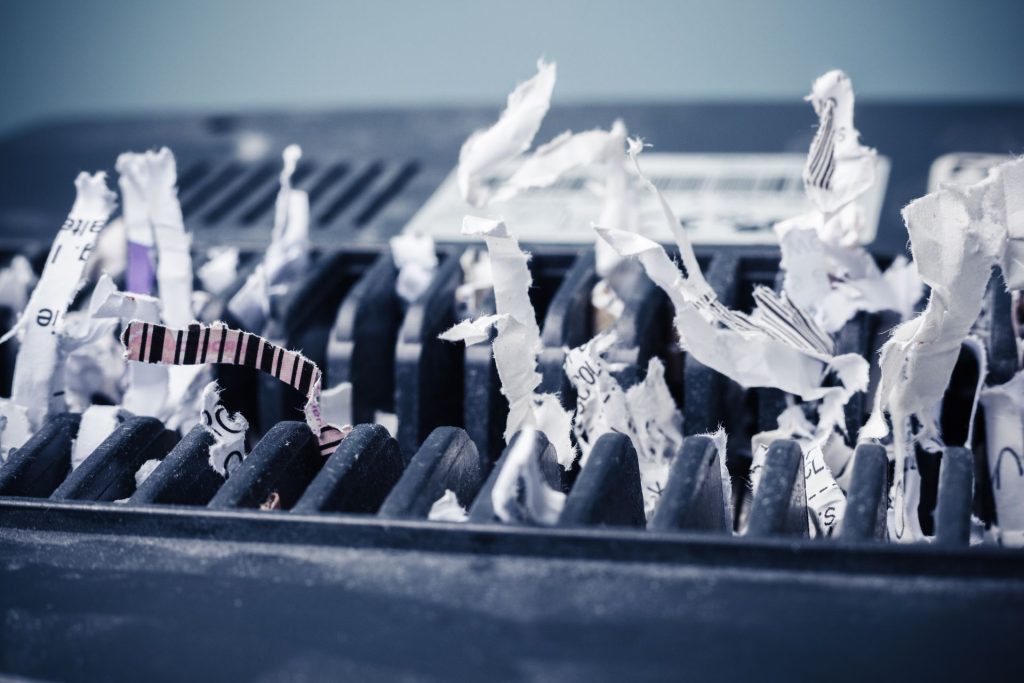Almost every healthcare professional has access to confidential medical files, stored in computer systems or paper files. As a result, hospitals and doctors must adhere to strict protocols for the proper management and destruction of these files. Although shredding may seem like a waste of time, it’s a requirement and is an important component of any Privacy Policy.
HIPAA rules require medical records to be shredded
Medical records are sensitive and must be disposed of properly to ensure the privacy and security of patient data. Fortunately, there are several HIPAA-compliant medical records shredding options. By using a certified, professional shredding service, you can ensure compliance with HIPAA regulations.
It is important to destroy all medical records once their retention period has expired. By retaining them, you increase the risk of accidental disclosure or data breach. The HIPAA Privacy Rule requires that healthcare organizations provide adequate safeguards for PHI and medical records. Destroyed medical records and other pieces of PHI are unreadable or impossible to reconstruct.
Medical records shredding requires trained employees who understand the system and how to use it properly. Even though it may seem like a simple process, employees can sometimes overlook the importance of maintaining patient privacy. In order to prevent these incidents, proper training is essential for all employees. The right training can make all the difference in the security of medical data and help reduce medical records breaches.
Aside from protecting patients’ privacy, HIPAA compliance protects your organization’s bottom line. Infractions can lead to civil and criminal penalties. The fines are higher for repeat violators, and they increase over time. Even jail time can be levied in some cases.

Cost of medical records shredding
Medical records are filled with sensitive information, and they must be destroyed securely at the end of their lifecycle. Under the Personal Health Information Protection Act (PHIPA), healthcare providers are required to secure the destruction of these documents. This law also requires that all spare copies be shredded regularly. By following this law, healthcare organizations can minimize the risk of identity theft.
In addition to reducing the risk of identity theft, proper medical records shredding is a great way to comply with HIPAA regulations and meet patient privacy protection standards. HIPAA regulations require that medical facilities train employees on proper destruction procedures to protect the patient’s private information. By using a professional service, you can ensure that your documents are shredded properly and are completely destroyed. This helps to protect the privacy of your patients, while also saving you storage space.
Using a store-bought shredding machine is ineffective in protecting patients’ privacy. It may also leave sensitive information on documents. In addition, the information can be retrieved from improper disposal. To protect your patient’s privacy, you must carefully train your staff to shred medical records using certified shredders. This is an expensive and time-consuming process, and a violation of HIPAA guidelines can lead to fines of $50,000 per violation. Fortunately, there are now reputable and affordable ways to shred medical records.
Healthcare facilities are well aware of the HIPAA law passed in 1996. They understand how important it is to protect their patient’s PHI. HIPAA mandates that healthcare facilities must destroy patient medical records in a secure manner, and follow proper disposal guidelines. These guidelines ensure that the PHI is protected through the entire shredding process.
The safest way to destroy medical records
In order to protect patient privacy and the integrity of medical records, medical professionals must follow specific laws regarding medical record destruction. A NAID AAA-certified provider can help ensure compliance with the law and protect patients’ rights. Moreover, a NAID AAA-certified provider can certify that its shredding and destruction methods meet all standards and protocols for the secure destruction of medical records.
HIPAA regulations outline when and how medical records should be destroyed. However, the state’s laws can differ. Some may have their own data retention requirements, which will determine how long the healthcare facility must keep records. In many states, it’s mandatory for healthcare providers to follow these laws.
For hospitals and other covered entities, the HIPAA security rules require them to secure HIPAA-listed information, which includes medical records. This means that covered entities must review their disposal procedures, develop policies and procedures, and take special care to protect data that could lead to identity theft. The HIPAA Privacy Rule also requires covered entities to implement safeguards to protect patient privacy and prevent unauthorized access to private health information.
AHIMA also recommends that healthcare facilities review their destruction methods annually. It recommends using the latest technology and choosing a reliable vendor for the process. The process should be timely and effective. Get started today by calling (978)636-0301 or drop off your documents at 1215 Main St, Tewksbury MA 01876

